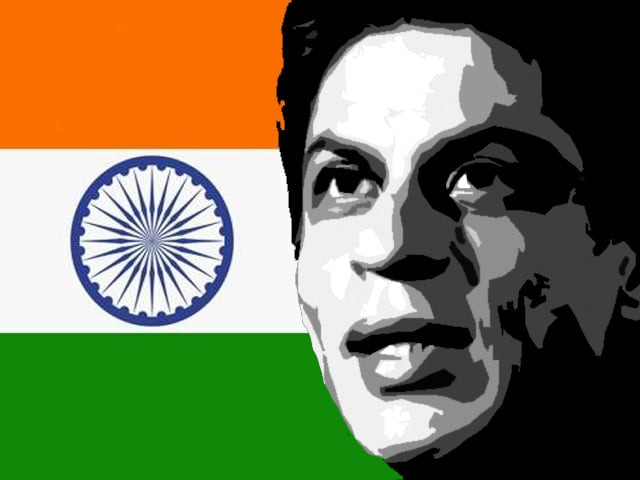There were many in India at that time who did not know that Yusuf Khan is actually Dilip Kumar, the popular superstar of the Bombay film industry. India and the world accepted him and lauded him for his acting prowess. Nobody cared about his name. But there were certain sections in the Indian society which were not comfortable with his Islamic identity and they always recognised and identified him with that religious tag. Despite all the success and the stardom that the thespian achieved in his long artistic career his Islamic name remained a stigma for him in the eyes of the majoritarian right. A section always considered him a suspect.
In 2013, superstar Shahrukh Khan wrote:
“I encounter this tightening of definition every time moderation is required to be publicly expressed by the Muslim community in my country. Whenever there is an act of violence in the name of Islam, I am called upon to air my views on it and dispel the notion that by virtue of being a Muslim, I condone such senseless brutality. I am one of the voices chosen to represent my community in order to prevent other communities from reacting to all of us as if we were somehow colluding with or responsible for the crimes committed in the name of a religion that we experience entirely differently from the perpetrators of these crimes.” — there is something wrong in the state of India.
This is the voice of a man whose popularity bypasses all caste, community, religion and nationalism. However, he seems to have failed to transcend the boundary of identity or put it differently, he remains a prisoner of Islamic identity despite all his attempts to liberate himself from other’s prejudices. The Hindu fanatic narrative keeps him caged in their old world view, which see Muslims as others.
More than six decades into India’s secular and constitutional democracy the old fault line still exists. The Hindu right has been at work from the beginning to accentuate that divide. In the post 9/11 world this divide becomes all the more pronounced despite constant attempts to bridge that gap and develop a dialogue of understanding.
The problem is not with the larger minority and their ways of life, the issue is with the majoritarian project and their worldview. The Hindu right and major sections of the majority community define themselves in terms of political boundary. They forget the inalienable civilisational and cultural links between people all over South Asia. Our media, the government and the radical rights perpetuate this narrow definition of identity. This obstructs the emergence of a robust South Asian community which transcends political boundary.
Therefore the problem is not with Dilip Kumar or Shahrukh Khan and their religious identity- the problem is with our own parochial understanding of our own history and culture. Many politicians and political groups in India define their destiny through this narrowness. The Hindu right, Bharatiya Janata Party or BJP’s whole locus standi is based on their anti Islamic and anti minority philosophy. Shiv Sena derives its political legitimacy by accentuating the fault lines. Some of the Muslim organisations also fall prey to this project.
The fear of Muslims in India is all the more pronounced when the system becomes prejudiced. This has happened time and again. The most recent is the police firing on Muslim crowds in Dhule, a district in Maharashtra. The local administration sided with the fanatic Hindu groups and killed some of the members of the minority community. The incident happened in a state which is ruled by a Congress led secular government.
The classic example of persecution of Muslim minority is the 2002 riots in Gujarat in which, as the various reports suggest, Narendra Modi led BJP government colluded with the rioters and killed close to 2000 people and destroyed many families forever.
No justice has been done to the victims in the last one decade and the whole minority community in the state stands ghettoised. Today Narendra Modi claims himself and the BJP accepts him as the tallest leader in the party. He calls himself a great nationalist. The same Modi who has blood on his hands is positioning himself to be the prime ministerial candidate from his party. Gujarat Chief Minister claims that he has worked hard to improve the GDP of the state and brought the province to the top of the developmental chart in the country.
The fact remains that Modi’s name to fame is his acts in 2002 and his projection as the progressive leader is the smokescreen. His nationalism negates Muslim minority. The sad part is that a sizable chunk of much touted and courted middle class India look towards him as the future leader of the country.
In this atmosphere when the Hindu right is trying to assert itself in a big way by projecting a highly divisive figure like Narendra Modi. A genuine fear among the largest minority is bound to take place in next year’s elections. Those who adore India and its plurality and multiculturalism are also feeling apprehensive.
It’s not about the physical security of an individual, it's about the idea of India. The question that Shahrukh Khan raises transcends his fear— the fear of each and every individual who cares for a secular and inclusive India.
Read more by Sanjay here, or follow him on Twitter @destinydefier



COMMENTS
Comments are moderated and generally will be posted if they are on-topic and not abusive.
For more information, please see our Comments FAQ